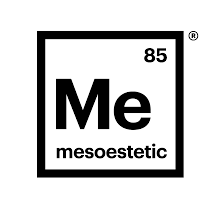Report by Libby Stewart, Cosmetic Courses Trainer
The on-going training of our professional team is very important to us here at Cosmetic Courses.
In order to keep delivering the best to our delegates, trainers Libby Stewart and Ruth Atkins yesterday attended a day on skin health and diagnosing and treating acne and rosacea
The meeting was organised by the British Association of Cosmetic Nurses, a professional organisation of which the girls are both members. One of the aims of the BACN is to ensure that nurses in the aesthetic industry are well informed and well educated in the latest techniques and treatment methodology.
The course was held in the prestigious setting of the Wellcome Foundation and was hosted by Galderma. Galderma are one of the leading producers of presciption medicines relating to skin health as well as manufacturing Azzalure, a brand of wrinkle relaxing injectable medicine.
This is therefore very valuable background knowledge regarding skin contraindications, not just for nurses on our botox training courses but all medical professionals attending Cosmetic Courses medical aesthetic training. Look out for a detailed report from Libby Stewart about treating clients with acne and rosacea, coming soon on the Cosmetic Courses blog!











